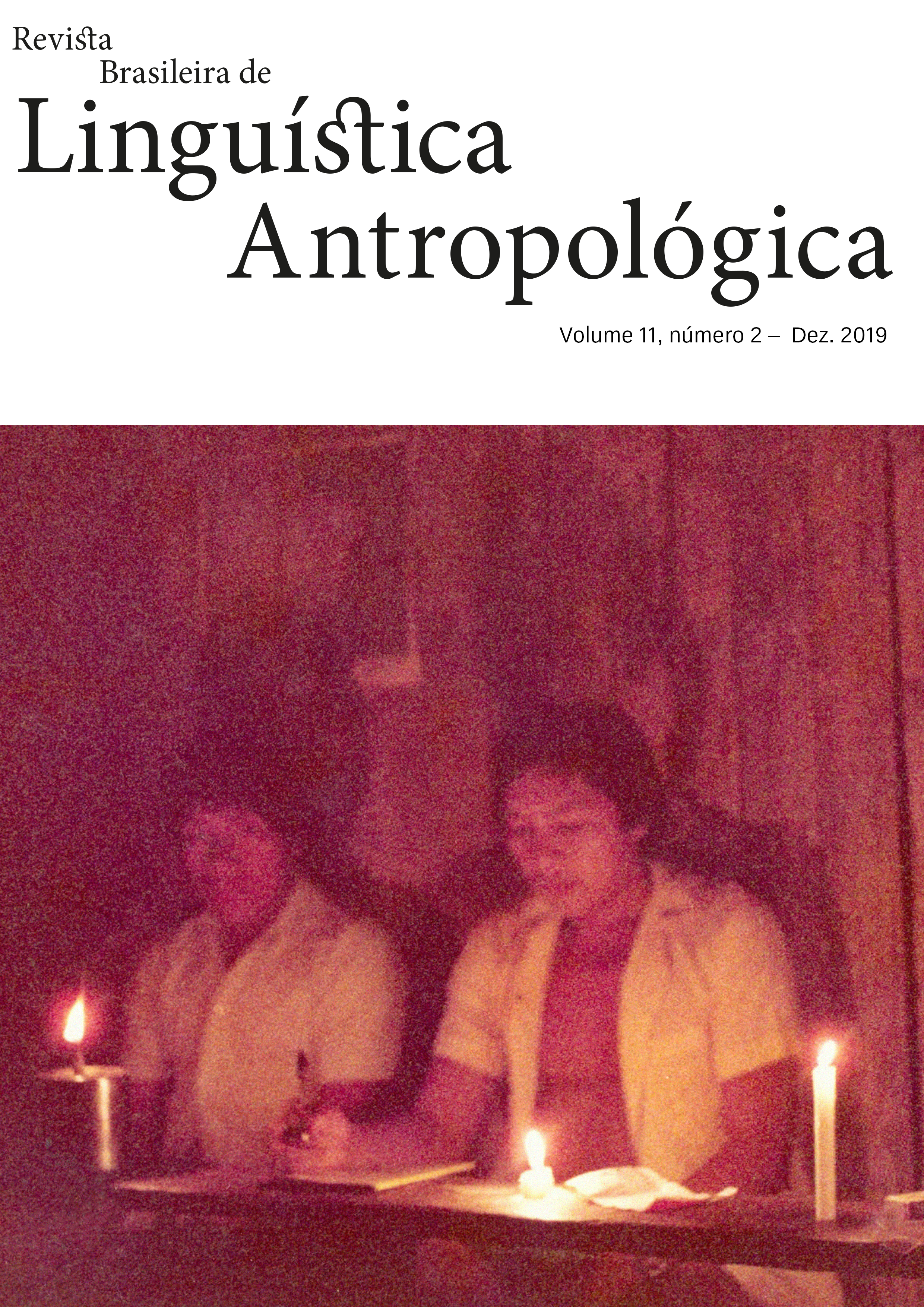The nature of the postpositions in Tenetehára (Tupí-Guaraní)
DOI:
https://doi.org/10.26512/rbla.v11i02.28454Keywords:
Tupí-Guaraní, Tenetehára, Adpositions, Agreement, Feature CheckingAbstract
This article aims to provide an agreement analysis between the postpositional phrase head and its complement in the Tenetehára language (Tupí-Guaraní). I assume that, in Tenetehára, the postpositions complements move to a specifier position of a functional category above PP, in order to check the Oblique Case. I provisionally label this functional category as FP. Thus, at the point of the derivation in which the head Fo, which moved from Po, is in a Spec-Head relation with the FP specifier, generated as a complement to Po, relational agreement is established.
Downloads
References
Cabral, Ana Sueli Arruda C. “Prefixos Relacionais na família Tupí-Guaraní”. 2001. In: M.E. (org). Boletim da ABRALIN. Fortaleza: Imprensa Universitária/UFC, no25, p. 213-226.
Camargos, Quesler F. 2017. Aplicativização, causativização e nominalização: uma análise unificada de estruturas argumentais em Tenetehára-Guajajára (Família Tupí-Guaraní). Tese de Doutorado, Universidade Federal de Minas Gerais.
Camargos, Quesler F., e Ricardo C. Castro. 2013. “Paralelismo entre DP e CP a partir das nominalizações na língua Tenetehára.” Revista da ANPOLL 34: 393-434.
Castro, Ricardo C. 2017. Morfossintaxe Tenetehára (Tupí-Guaraní). Tese de Doutorado, Universidade Federal de Minas Gerais.
Chomsky, Noam. 1981. Lectures on government and binding. Dordrecht: Foris.
Chomsky, Noam. 1982. Some concepts and consequences of the theory of government and binding. Cambridge: MIT Press.
Chomsky, Noam. 1995. The Minimalist Program. Cambridge, MIT Press.
Chomsky, Noam. 1999. Derivation by phase. Cambridge, MIT Press.
Chomsky, Noam. 2000. “Minimalist inquiries: The framework.” In Step by step: Essays on minimalist syntax in honor of Howard Lasnik, editado por R. Martin, D. Michaels e J. Uriagereka, 89-115. Cambridge, MIT Press.
Chomsky, Noam. 2001. “Derivation by phase.” In Ken Hale: A life in language, editado por M. Kenstowicz, 1-52. Cambridge, MIT Press.
Chomsky, Noam. 2005. “Three factors in language design.” Linguistic Inquiry 36 no. 1 (Winter): 1-22.
Duarte, Fábio B. 2002. “Negação e movimento do verbo na língua Tembé.” In Atas do Encontro internacional do GT de Línguas Indígenas da ANPOLL, Belém, 2002, 374-384. Belém: Universidade Federal do Pará.
Duarte, Fábio B. 2007. Estudos de morfossintaxe em Tenetehára. Belo Horizonte: FALE/UFMG.
Hornstein, Norbert, Jairo Nunes, e Kleanthes K. Grohmann. 2005. Understanding minimalism: an Introduction to Minimalist Syntax. Cambridge: Cambridge University Press.
Kayne, Richard S. 1994. The antisymmetry of Syntax. Cambridge: The MIT Press.
Kenedy, Eduardo. 2013. Curso básico de linguística gerativa. Editora Contexto: São Paulo.
Mithun, Marianne. 2017. “Argument marking in the polysynthetic verb and its implications.” In The Oxford Handbook of Polysynthesis, editado por Michael Fortescue, Marianne Mithun e Nicholas Evans, 30-58. Oxford: Oxford University Press.
Rodrigues, Aryon D. 1953. “Morfologia do Verbo Tupi”. Letras, Curitiba, n. 1, p. 121-152.
Rodrigues, Aryon D. 2011. “Argumento e predicado em Tupinambá”. Revista Brasileira de Linguística Antropológica, v. 3, n. 1, p. 93-102.
Silva Filho. Jomson T. (2018). Linearização e hierarquia no sistema computacional da linguagem humana, retomando o paradoxo posicional a partir do programa minimalista. 143 f. Tese (Doutorado em Letras e Linguística: Linguística) - Faculdade de Letras, Programa de Pós-Graduação em Letras e Linguística, Universidade Federal de Alagoas, Maceió.
Young, Robert W., e William Morgan. 1980. The Navajo Language: A Grammar and Colloquial Dictionary. Albuquerque: University of Mexico Press.
Downloads
Published
How to Cite
Issue
Section
License
Authors who publish in RBLA agree to the following terms:
a) Authors maintain the copyright and grant the journal the right of first publication, and the work is simultaneously licensed under the Creative Commons Attribution License, which allows the sharing of the work with recognition of the authorship of the work and initial publication in this journal.
b) Authors are authorized to assume additional contracts separately, for non-exclusive distribution of the version of the work published in this journal (eg, publish in an institutional repository or as a book chapter), with recognition of authorship and initial publication in this journal.
c) Authors are allowed and encouraged to publish their work online (eg, in institutional repositories or on their personal page) at any point before or during the editorial process, as this can generate productive changes, as well as increase impact and citation of the published work.







